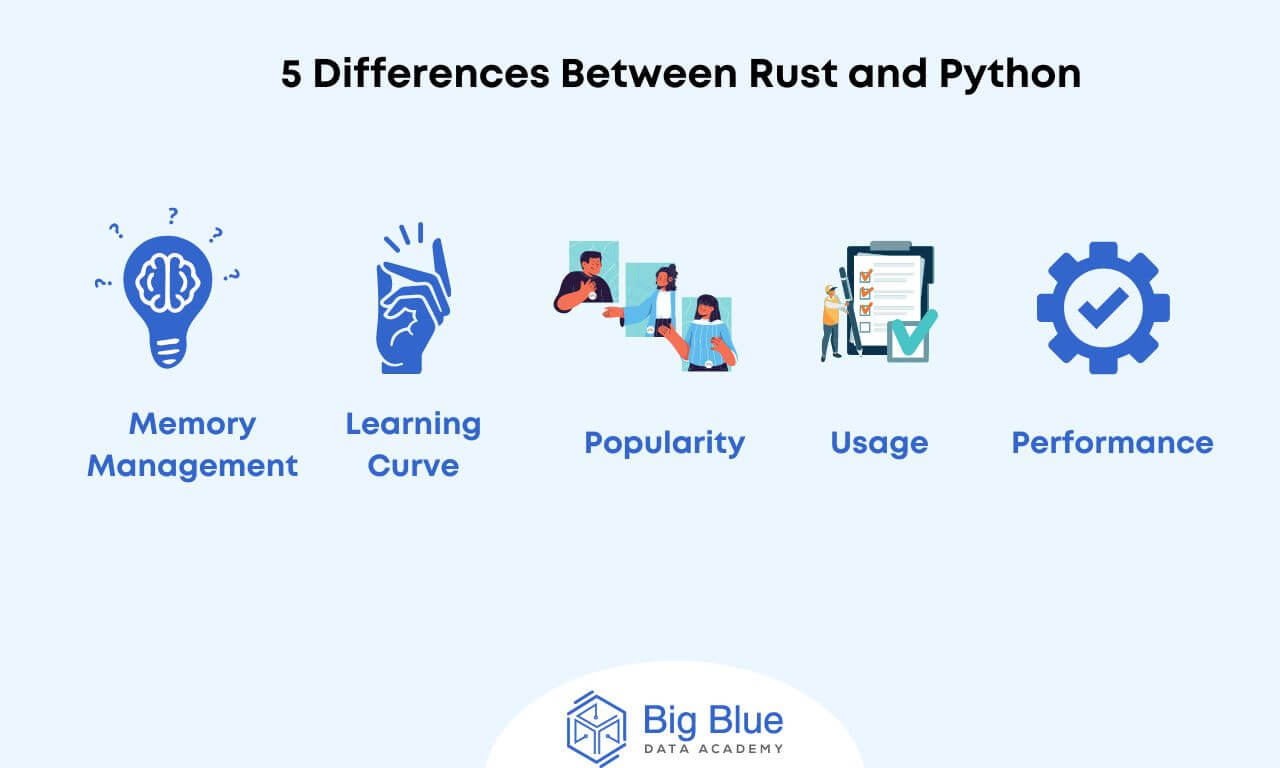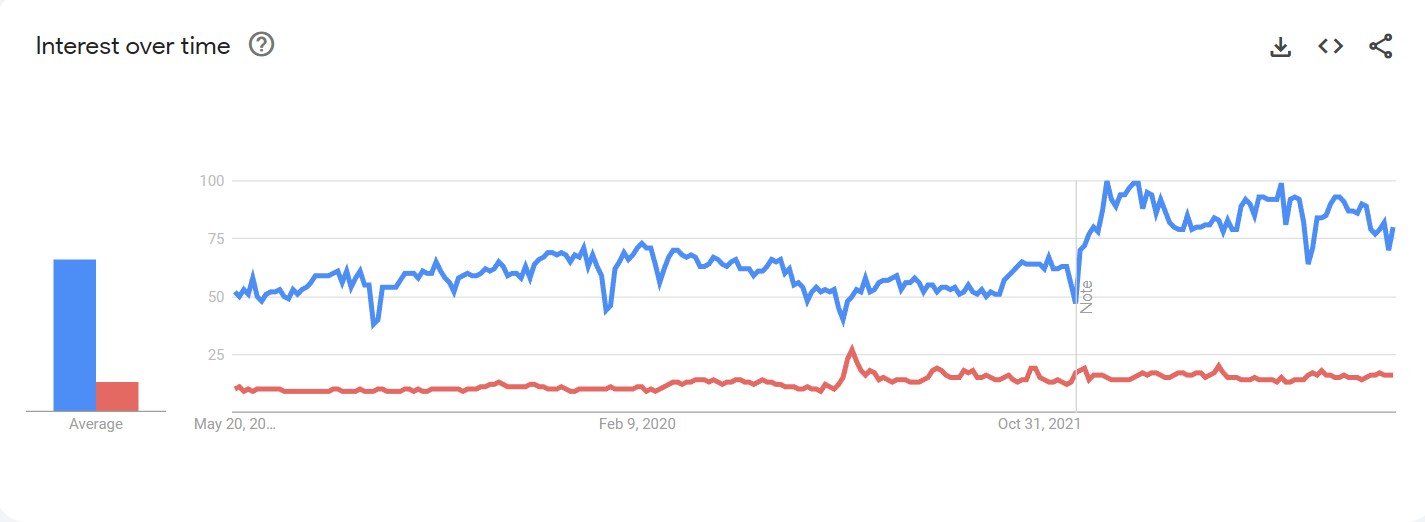Rust vs Python: What are the Differences?
Over the years, new programming languages have emerged while some older ones have lost their momentum.
Two popular languages with a strong presence are Python, which dominates the programming space, and Rust, a relatively newer language in this field.
In this article, we will explore:
What is Rust?
What is Python?
What are the differences between them?
Which one is better?
Let's start with two basic definitions.
What is Rust?
Rust is a general-purpose programming language with multiple paradigms that focuses on performance, type safety, and concurrency.
It has static typing and shares syntactic similarities with C++.
It originated as a personal project in 2006 by Graydon Hoare, a software developer at Mozilla.
In 2009, Mozilla funded the project, and in 2015, Rust made its appearance in the market.
Rust is popular for system programming and the ability to create high-performance and reliable applications.
What is Python?
Python is a high-level, general-purpose language with dynamic typing and built-in data structures.
It supports procedural as well as object-oriented programming.
Python was developed in 1991 and is well-known for application development, machine learning models, and AI.
It serves as a fundamental tool for both programming and data analysis fields, which is why it is especially used by data scientists and data analysts.
Now that we have covered some basic aspects of these two languages, let's delve into their differences.
Rust vs Python: Key Differences
Rust and Python have some important differences in the following aspects:

Memory Management
Python uses a "garbage collector" to control and automatically release unused memory during program execution.
On the other hand, Rust does not have a garbage collector for memory management.
Rust follows a different approach called ownership, which consists of a set of rules that govern how a program manages memory.
The compiler enforces these rules, and if any of them are violated, the program will not compile.
This way, data is deallocated without requiring the program to manually free the memory.
Learning Curve
Python is rightly praised as the most suitable language for beginners who want to start learning programming.
Its code readability and ease of learning are key features.
Python has a simple and straightforward syntax, and beginners can practice their knowledge by working on numerous projects.
On the other hand, Rust has a steeper learning curve.
It has more advanced features and requires a deeper understanding of system programming concepts.
Therefore, it is recommended for more experienced programmers.
Popularity
Both Python and Rust are open-source languages, which means they have a community of contributors who help in their development by providing resources and advice.
Rust, being relatively newer compared to Python, has a smaller community in proportion.
However, its community is rapidly growing, and its documentation is well-written and comprehensive.
As seen in the Google Trends graph below, Python (blue) consistently has higher demand compared to Rust (red):

Usage
These two programming languages have been created to serve different purposes, and as expected, they have different uses.
Python is a general-purpose language used in various fields such as web app development, data analysis, data visualization, and statistics.
It is commonly used for scripting in multiple environments, including DevOps purposes.
Many everyday applications like Uber, Facebook, and Netflix utilize Python.
On the other hand, Rust is generally used for systems programming, operating systems, embedded systems, games, and high-performance applications.
Software and companies including Firefox, Dropbox, Cloudflare, and Amazon use Rust.
Of course, both languages can also be integrated with other languages and executed on various platforms (cross-platform).
Performance
Rust is a compiled language characterized by its memory safety and efficient memory management.
Python, on the other hand, is an interpreted language and generally slower than Rust.
Of course, the performance of Python can be improved through its extensive library ecosystem and optimizations, but it is not inherently as efficient as Rust.
Which Language Is Better?
So, we discussed Python and Rust, analyzing their differences.
From a more comprehensive perspective, there is no right or wrong choice in the Rust vs Python dilemma as everything depends on individual needs.
Nevertheless, objectively, Python offers more capabilities and may potentially be a better choice for both novice and experienced developers or data scientists.
If you want to learn more about Python and the world of Data Science, follow us to stay updated!

-copy.jpg)
.jpg)